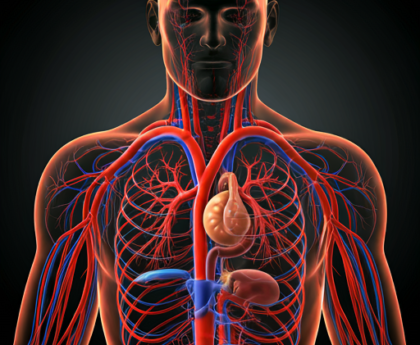Managing blood sugar levels is crucial for overall health and well-being, particularly for individuals prone to diabetes or insulin resistance. While conventional medicine offers various treatments, natural remedies like berberine are gaining popularity for their potential to help maintain healthy blood sugar levels.
This article will explore how berberine, a bioactive compound derived from various plants, can be a powerful ally in the journey toward better blood sugar control.
What is Berberine?
Berberine is an alkaloid found in plants such as Berberis, Goldenseal, and Oregon Grape. Used for centuries in traditional Chinese and Ayurvedic medicine, this compound has demonstrated an impressive range of health benefits, including its impact on blood sugar regulation. It is golden yellow colour and bitter taste make it easily recognizable, but it’s berberine’s medicinal properties that have kept it in use for so long.

Studies have shown that berberine activates a key enzyme known as AMP-activated protein kinase (AMPK), often referred to as the “metabolic master switch.” This enzyme plays a vital role in regulating metabolism, including the way the body uses glucose. By activating AMPK, berberine helps improve insulin sensitivity, which in turn facilitates better glucose uptake by the body’s cells.
How Berberine Helps Control Blood Sugar
- Improves Insulin SensitivityOne of the leading causes of high blood sugar is insulin resistance, where cells in the body do not respond well to insulin, the hormone responsible for regulating glucose levels. Berberine has been shown to enhance insulin sensitivity, making it easier for cells to absorb glucose from the bloodstream. This action helps to lower blood sugar levels and prevent dangerous spikes, particularly after meals.
- Reduces Glucose Production in the LiverAnother mechanism through which berberine aids in blood sugar control is by reducing glucose production in the liver. The liver normally releases glucose into the bloodstream between meals or during periods of fasting. In people with type 2 diabetes or prediabetes, the liver tends to overproduce glucose, exacerbating high blood sugar levels. Berberine inhibits this excess production, helping to maintain more stable glucose levels.

- Slows Down Carbohydrate BreakdownBerberine has been found to slow the breakdown of carbohydrates in the gut, which leads to a more gradual release of glucose into the bloodstream. This is particularly beneficial for individuals who experience sharp spikes in blood sugar after eating carbohydrate-rich meals. By moderating the digestion and absorption process, berberine can help smooth out post-meal glucose fluctuations.
- Supports Gut HealthThere’s growing evidence that gut health plays a significant role in blood sugar regulation. Berberine has been shown to positively affect the gut microbiome, promoting the growth of beneficial bacteria that can contribute to better metabolic function. A healthy gut is crucial for effective glucose metabolism, and berberine’s ability to balance the microbiome can indirectly support blood sugar control.

Clinical Studies on Berberine and Blood Sugar Control
Multiple studies have investigated the effects of berberine on blood sugar management, with promising results. In fact, some studies suggest that berberine may be as effective as certain pharmaceutical drugs commonly used to treat diabetes, such as metformin.
In a study published in the journal Metabolism, researchers found that berberine significantly lowered fasting and postprandial (after meal) blood sugar levels in people with type 2 diabetes. Participants also saw improvements in other metabolic markers, including reduced levels of triglycerides and cholesterol.
Another study in Diabetes Care compared the effects of berberine to metformin, one of the most widely prescribed medications for type 2 diabetes. The results showed that berberine had a similar glucose-lowering effect as metformin, making it a compelling natural alternative for individuals seeking more holistic treatment options.
How to Use Berberine for Blood Sugar Management
Berberine supplements are widely available in capsule or tablet form. The recommended dosage for blood sugar control is typically between 900-1500 mg per day, divided into two or three doses. Taking berberine with meals may enhance its glucose-lowering effects, as it can help reduce the glucose spike that often occurs after eating.
However, it’s important to note that berberine may interact with certain medications, including those prescribed for diabetes. If you are already taking medication to manage your blood sugar, it’s crucial to consult with a healthcare professional before adding berberine to your regimen.
Additional Health Benefits of Berberine
Beyond its impact on blood sugar, berberine offers several other health benefits. It has been shown to support weight loss, improve heart health by lowering cholesterol and triglyceride levels, and possess anti-inflammatory and antioxidant properties. These additional benefits make berberine a versatile supplement for individuals looking to improve their overall health.
Conclusion
Berberine is a powerful natural compound that offers significant benefits for blood sugar control. By improving insulin sensitivity, reducing glucose production in the liver, slowing carbohydrate breakdown, and promoting gut health, berberine can help individuals maintain more stable blood sugar levels.
While it’s not a replacement for conventional diabetes treatment, it can be a valuable complementary therapy for those seeking to manage their blood sugar naturally. As always, consult with a healthcare provider before incorporating berberine into your daily routine to ensure it’s the right choice for you.
Visit our store here to purchase superfoods containing supplements that will help Activate Better Blood Sugar Control and wellness naturally.
Do you want more updates on how to incorporate natural Herbs into your daily routine, Join our community for growth, updates, Learning and Huge Discounts Here
![]()





